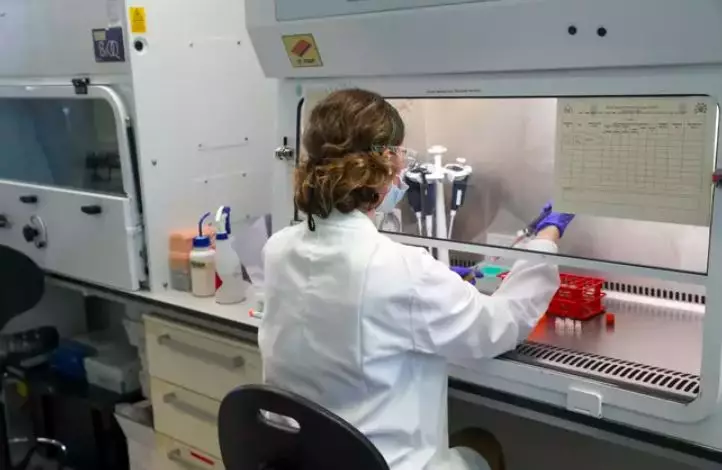
Scientists are planning on putting on a concert to see how coronavirus spreads.
Researchers in Germany are looking to enlist the services of 4,000 volunteers to take part in the study at an indoor event in Leipzig on 22 August.
During the gig, which will see a performance from singer-songwriter Tim Bendzko, volunteers will be asked to wear a tiny contact tracer around their necks, The Guardian reports. These will then set off signals every five seconds, recording data about the person's movements in relation to others.

Participants in the €990,000 (£900,000) Restart-19 project will also have to disinfect their hands with a fluorescent santiser. This will allow scientists to analyse how the virus is transmitted throughout a concert venue.
Advert
Vapours dispersed by a fog machine will also help demonstrate the potential spread of coronavirus.
The organisers of the study say the ultimate aim is to 'identify a framework' for how large venues will, in the future, be able to reopen and start to function again after 30 September 'without posing a danger for the population'.

This comes after the Oxford University Covid-19 vaccine was found to be 'safe' and to provide an immune system response, the latest research has revealed.
Advert
The results of research published today in medical journal The Lancet concluded: "ChAdOx1 nCoV-19 was safe, tolerated, and immunogenic, while reactogenicity was reduced with paracetamol.
"A single dose elicited both humoral and cellular responses against SARS-CoV-2, with a booster immunisation augmenting neutralising antibody titres.

"The preliminary results of this first-in-human clinical trial supported clinical development progression into ongoing phase 2 and 3 trials."
Advert
The study continued: "ChAdOx1 nCoV-19 showed an acceptable safety profile, and homologous boosting increased antibody responses.
"These results, together with the induction of both humoral and cellular immune responses, support large scale evaluation of this candidate vaccine in an ongoing phase 3 programme."
Of course, this isn't a green light to start immunising the whole population of the world, as there is still a long way to go before that stage, but the results have been described as 'promising' and the development can continue progressing at speed.
The journal added: "Authors say further clinical studies, including in older adults, should be done with this vaccine."
Advert
The study, which included 1,077 participants, warned that there is still much distance to be crossed, adding: "Current results focus on immune response measured in the laboratory. Further testing is needed to confirm if [the] vaccine effectively protects against infection."
Featured Image Credit: PATopics: Science, World News, Coronavirus, Health